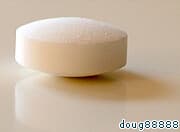Girls of any age can buy the morning-after pill without a prescription from pharmacies in Ireland, following a controversial decision.
Pharmacies will have discretion to sell the NorLevo brand of the morning-after pill to females of any age following a declaration by the Irish Medicines Board (IMB).
The morning-after pill can cause an early stage abortion and the new move in Ireland is likely to alarm many.
Consent
Ireland’s pharmacy regulator has released interim guidance on NorLevo which advises: “Where appropriate, pharmacists need to assure themselves of the age of the patient.”
The guidance also points out that it is “usual” for parental consent to be sought when a patient aged under 16 asks for medical treatment. The age of sexual consent in Ireland is 17.
NorLevo is one of two brands of morning-after pill available in Ireland but it is now the only one available without prescription.
The decision comes even though there have been no trials to study either repeated use of the morning-after pill or its side effects on young girls.
Critics
NorLevo is made by HRA Pharma, which also manufactures the controversial Ellaone morning-after pill.
Ellaone was introduced in the UK in October 2009 and is specifically designed to end pregnancies up to five days after sexual intercourse.
Like other versions of the morning-after pill, it can destroy an embryo by thinning the lining of the womb.
Critics warned that Ellaone could also encourage casual sexual relationships.
Infections
Earlier this year a study exposed the failure of the previous UK Government’s programme of increased access to the morning-after pill.
It showed that handing out free morning-after pills to teenage girls had done nothing to reduce teen pregnancies and may have led to diagnoses of sexually transmitted infections (STIs) going up.
The study compared areas of England where the Labour Government’s programme was introduced with others that either declined to provide the morning-after pill for free, or did so at a later date.
Promiscuity
The study, by Professor David Paton and Professor Sourafel Girma, found that rates of pregnancy among teenage girls remained the same, but STI diagnoses increased by five per cent in areas where the morning-after pill was available for free.
Norman Wells, director of the Family Education Trust, said: “International research has consistently failed to find any evidence that emergency birth control schemes achieve a reduction in teenage conception and abortion rates.
“But now we have evidence showing that not only are such schemes failing to do any good, but they may in fact be doing harm.”
A Daily Mail editorial questioned whether it was a surprise that “distributing contraceptives and abortion tablets like Smarties serves only to encourage promiscuity among those too young to cope with its consequences”.

